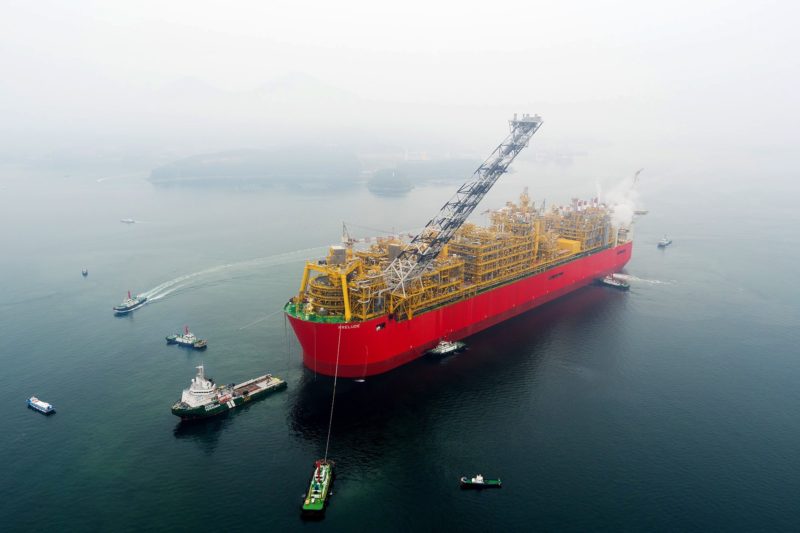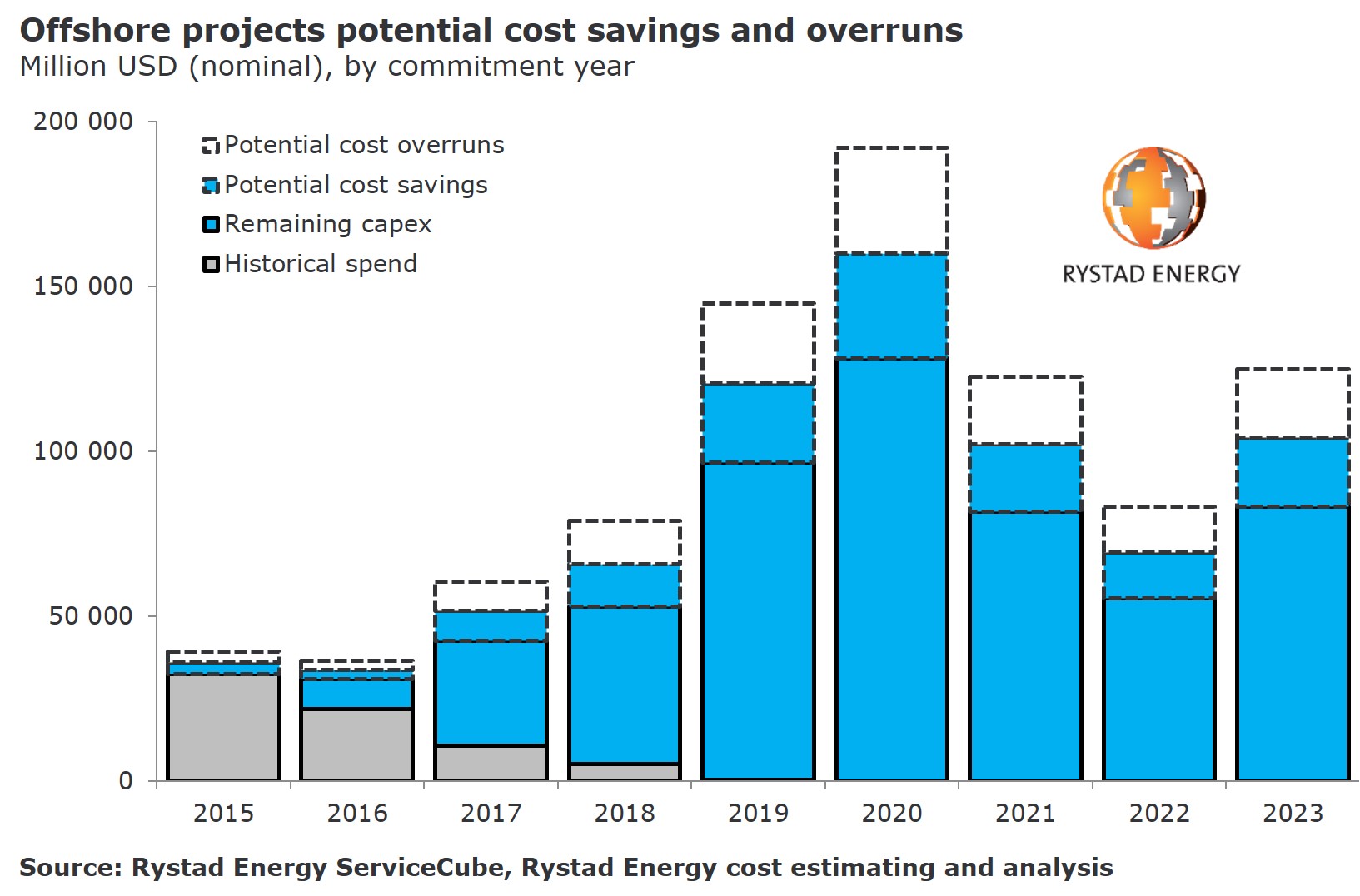
Cost uncertainty for offshore oil and gas projects around the globe could be as high as $220bn over the next four years.
Analysts Rystad Energy said operators are now tempted to “accelerate” sanctioning of new projects to reap the rewards of the higher oil price.
As a result there is less certainty on what the ultimate costs will be, with potential of cumulative savings or overruns of $111bn for those expected to be green-lit over the next four years.
This is due to the potential for some being pushed ahead without a high level of “engineering definition” – a means of planning which helps keep costs within 20% of estimates.
Rystad said there is also a risk of firms subsequently slowing down the final investment decisions to manage risks, as evidenced by Shell’s recent Prelude project.
The floating liquefied natural gas project off the coast of Western Australia saw costs balloon from just over $11bn to $15bn.
Vice president of Rystad’s Oilfield Service Research Division, Matthew Fitzsimmons, said: “These overruns caused Shell to cancel an order with Samsung Heavy Industries for three FLNG units worth $4.6 billion in 2016. So, in essence, these cost overruns prevented Shell from sanctioning several additional FLNG projects.
“Even if oil prices stay above $60 per barrel over the next five years, offshore sanctioning could slow down due to project performance.
“To manage inherent sanctioning risk, we’ve observed that operators are delaying their final investment decisions in order to mature the engineering definition. This will lower the uncertainty that their funding estimates will carry.
“Failure to do so will not only have an adverse impact on the operator’s ability to control cost overruns, but also the minority share owners of the field.”
Recommended for you


